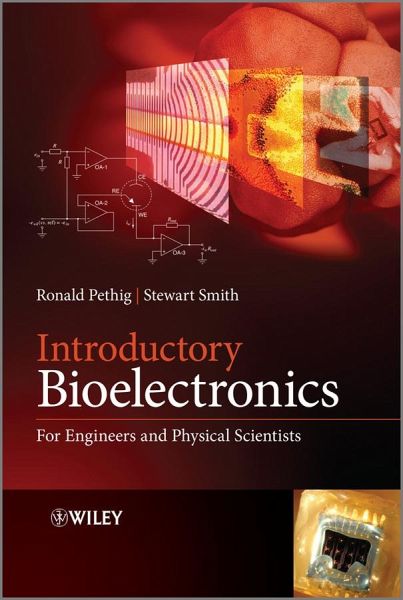
Introductory Bioelectronics
For Engineers and Physical Scientists
Versandkostenfrei!
Versandfertig in über 4 Wochen
90,99 €
inkl. MwSt.
Weitere Ausgaben:

PAYBACK Punkte
45 °P sammeln!
With its interdisciplinary approach to basic theory, practical examples, and clinical applications, this is the only book available on the topic that is suitable for students. Emphasizing the fundamentals of biochemical, biophysical, electrical, and physiological concepts relevant to bioelectronics, it delivers the necessary biological knowledge from an electrical engineer's perspective. It also contains new developments in bioelectronics and biosensors, such as microfluidic devices and nanotechnology. Each chapter contains a problem section that readers can use for self-assessment, and model answers and references are given at the end of the book.
Bioelectronics is a rich field of research involving the application of electronics engineering principles to biology, medicine, and the health sciences. With its interdisciplinary nature, bioelectronics spans state-of-the-art research at the interface between the life sciences, engineering and physical sciences.
Introductory Bioelectronics offers a concise overview of the field and teaches the fundamentals of biochemical, biophysical, electrical, and physiological concepts relevant to bioelectronics. It is the first book to bring together these various topics, and to explain the basic theory and practical applications at an introductory level.
The authors describe and contextualise the science by examining recent research and commercial applications. They also cover the design methods and forms of instrumentation that are required in the application of bioelectronics technology. The result is a unique book with the following key features:
an interdisciplinary approach, which develops theory through practical examples and clinical applications, and delivers the necessary biological knowledge from an electronic engineer's perspective
a problem section in each chapter that readers can use for self-assessment, with model answers given at the end of the book along with references to key scientific publications
discussions of new developments in the bioelectronics and biosensors fields, such as microfluidic devices and nanotechnology
Supplying the tools to succeed, this text is the best resource for engineering and physical sciences students in bioelectronics, biomedical engineering and micro/nano-engineering. Not only that, it is also a resource for researchers without formal training in biology, who are entering PhD programmes or working on industrial projects in these areas.
Introductory Bioelectronics offers a concise overview of the field and teaches the fundamentals of biochemical, biophysical, electrical, and physiological concepts relevant to bioelectronics. It is the first book to bring together these various topics, and to explain the basic theory and practical applications at an introductory level.
The authors describe and contextualise the science by examining recent research and commercial applications. They also cover the design methods and forms of instrumentation that are required in the application of bioelectronics technology. The result is a unique book with the following key features:
an interdisciplinary approach, which develops theory through practical examples and clinical applications, and delivers the necessary biological knowledge from an electronic engineer's perspective
a problem section in each chapter that readers can use for self-assessment, with model answers given at the end of the book along with references to key scientific publications
discussions of new developments in the bioelectronics and biosensors fields, such as microfluidic devices and nanotechnology
Supplying the tools to succeed, this text is the best resource for engineering and physical sciences students in bioelectronics, biomedical engineering and micro/nano-engineering. Not only that, it is also a resource for researchers without formal training in biology, who are entering PhD programmes or working on industrial projects in these areas.


